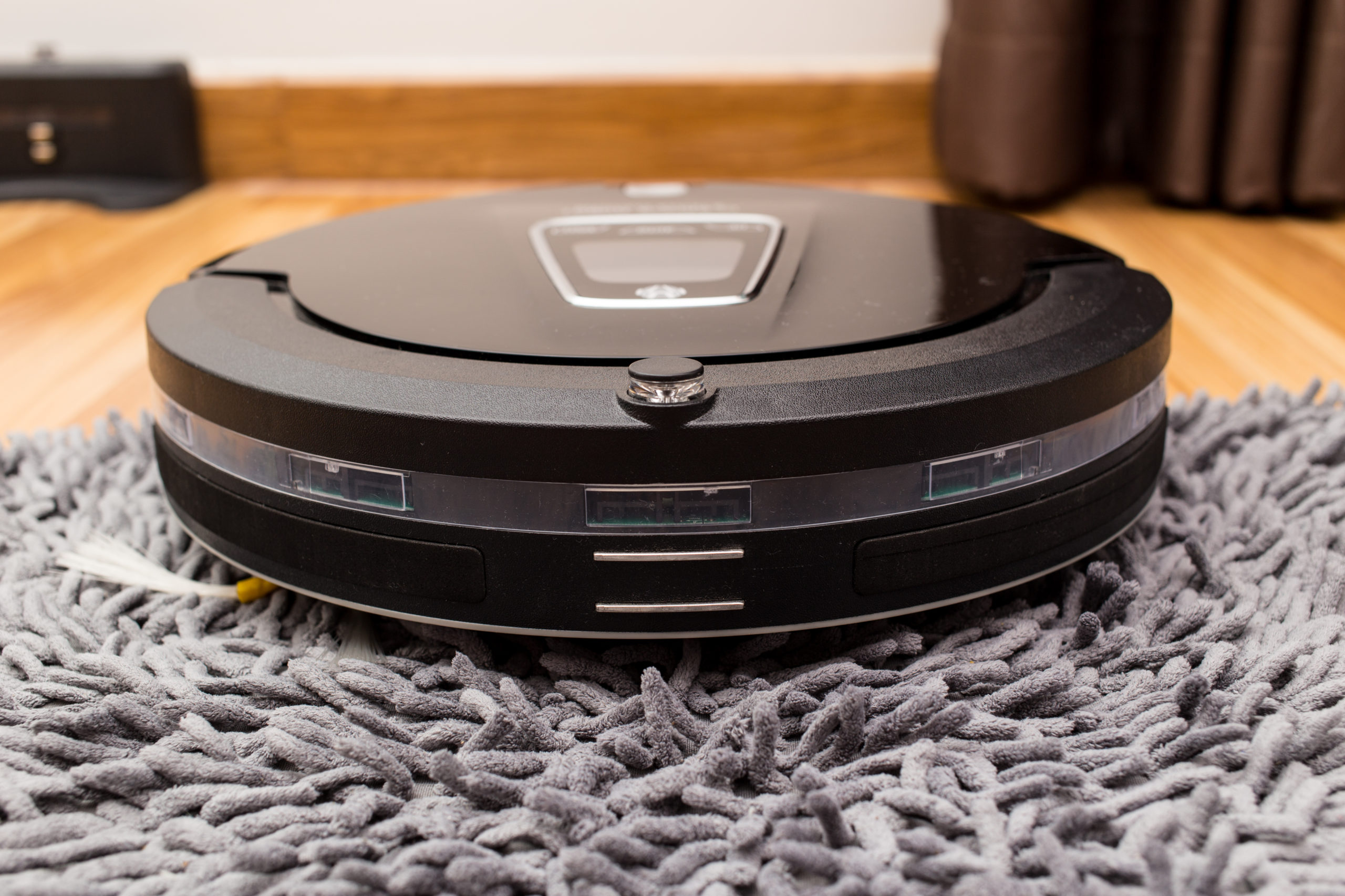“Shark’s plan has always been to copy iRobot’s innovations, undercut iRobot on price, and steal iRobot’s market share.’’ – iRobot
 Roomba maker IRobot Corp. came closer to its goal of knocking down cheaper rival SharkNinja after winning a decision in its patent-infringement case at the International Trade Commission (ITC/Commission), though it wasn’t a clear victory.
Roomba maker IRobot Corp. came closer to its goal of knocking down cheaper rival SharkNinja after winning a decision in its patent-infringement case at the International Trade Commission (ITC/Commission), though it wasn’t a clear victory.
ITC Judge MaryJoan McNamara said SharkNinja infringed two of four asserted iRobot patents, according to a notice posted last week on the agency’s electronic docket. The judge’s full findings won’t be public for a couple of weeks, to enable both sides to redact confidential business information. The determination is likely to undergo a review by the commissioners with a final decision scheduled for Feb. 7. That means even if there is an import ban, it wouldn’t take effect until well after the holiday shopping season, since there’s a 60-day presidential review period when the Commission issues exclusion orders.
Even without a final decision from the Commission, the judge’s findings could drive the two sides to negotiate a settlement, particularly to eliminate a potential headache for Amazon.com Inc. The e-commerce giant has announced plans to buy iRobot for $1.7 billion to add another smarthome device to its line of products. Amazon already promotes the Roomba when a consumer searches for a Shark robotic vacuum.
The Federal Trade Commission (FTC) has said it plans to take a closer look at mergers in the tech space, and this isn’t the only big-ticket purchase announced by Amazon – it bought the MGM Hollywood studio and plans to buy healthcare provider One Medical. FTC Chairwoman Lina Khan rose to prominence with an influential 2017 Yale Law Journal article criticizing Amazon’s market dominance.
The Amazon deal just adds another layer to what had already been a high-profile case because of the growth in the home robotic market.
The judge found that SharkNinja infringed two claims of a patent for auto docking and two claims of a patent for navigational control. She also found that a third patent, for autonomous floor cleaning, was infringed but there was no violation of the patent because the Patent Trial and Appeal Board (PTAB) has found the patent invalid. A fourth patent, for map-based training, wasn’t infringed, the judge found. McNamara recommended an import ban be imposed on vacuums using those two patented inventions.
A Long Patent Slog
For iRobot, the dispute with JS Global Lifestyle Co.’s SharkNinja is the biggest in a years-long effort to maintain its market dominance and fend off what it considers knock-offs of its signature product. It successfully enforced patents to slow down cheaper rivals like Techtronic Industries Co.’s Hoover and Shenzhen Silver Star and even forced Stanley Black & Decker Inc. to stop selling home robotic vacuums in an earlier ITC case.
The Roomba, first introduced in 2002, pioneered the market for robotic vacuums and for two decades the company has been able to rely on its innovations to justify a higher price in both the Roomba and Braava floor-mopping robot. But falling revenue caused by competition and supply chain issues led to cascading problems, including a 29% drop in U.S. sales in the second quarter, that made it ripe for takeover.
The biggest threat comes from SharkNinja, which sells its robotic vacuums for less than half the price of a Roomba. Since entering the robotic cleaning market with its Shark Ion in 2017, the company has grown to become the second-biggest player in North America. The “Ninja” moniker is used for its kitchen appliances, including air fryers.
Robot Trial
In the January trial, iRobot claimed SharkNinja incorporated “lower-quality imitations’’ of patented technology for components to navigate cleaning areas, perform autonomous charging, and map floor layouts, including ones that would identify “hot spots’’ for targeted cleaning.
“Internal documents and testimony from Shark revealed that Shark’s plan has always been to copy iRobot’s innovations, undercut iRobot on price, and steal iRobot’s market share,’’ iRobot said in its post-hearing brief in the case.
It argued that SharkNinja intentionally copied the work of iRobot’s R&D investments and then “loudly and proudly touted them in its product launches and marketing to draft off iRobot’s industry praise for those very features.’’
SharkNinja focused much of its defense on invalidity, arguing that the patented ideas were rehashed versions of known technology and in some cases didn’t even qualify as inventions.
The autonomous charging patent just covers the concept of slowing down before entering the docking station, the company argued. That patent “threatens to stifle meaningful innovation in the robotic cleaner industry,’’ SharkNinja said in its post-hearing brief. “Changing cleaning behavior based on location is a basic and abstract idea that predate all vacuums, much less robot vacuums,’’ it said of one of the mapping patents found to be infringed.
Days before the trial began, SharkNinja introduced newer models called the Series 3 that it said designed around the patents and asked McNamara to recommend that they exempt from any import ban. IRobot said it has reviewed some redesigns, but it wasn’t clear whether the “Series 3’’ robots that Shark is selling are the same redesigned products it saw.
IRobot turned to the ITC in January 2021 after a federal judge in Boston, near the company’s hometown, rejected a request that the Shark vacuums be pulled off the market until a civil could be held and the U.S. Patent and Trademark Office instituted Inter Partes Reviews of all of the asserted claims in the Massachusetts case.
The ITC Case is In the Matter of Certain Robotic Cleaning Devices, 337-1252, U.S. International Trade Commission (Washington).
Image Source: Deposit Photos
Image ID: 100620528
Author: coffeekai

![[IPWatchdog Logo]](https://ipwatchdog.com/wp-content/themes/IPWatchdog%20-%202023/assets/images/temp/logo-small@2x.png)

![[Advertisement]](https://ipwatchdog.com/wp-content/uploads/2024/04/Patent-Litigation-Masters-2024-sidebar-early-bird-ends-Apr-21-last-chance-700x500-1.jpg)

![[Advertisement]](https://ipwatchdog.com/wp-content/uploads/2021/12/WEBINAR-336-x-280-px.png)
![[Advertisement]](https://ipwatchdog.com/wp-content/uploads/2021/12/2021-Patent-Practice-on-Demand-recorded-Feb-2021-336-x-280.jpg)
![[Advertisement]](https://ipwatchdog.com/wp-content/uploads/2021/12/Ad-4-The-Invent-Patent-System™.png)







Join the Discussion
One comment so far.
Pro Say
October 12, 2022 10:34 amWho would have expected this much of a dust up . . . between a couple of carpet cleaners?
Someone’s playing dirty, that’s for sure.